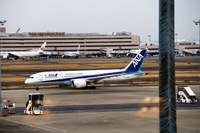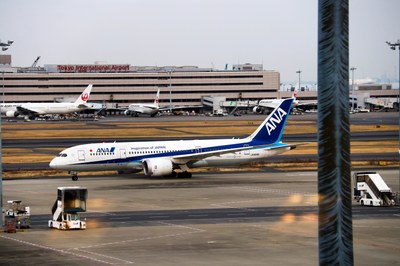Major Japanese aviation companies strengthen their defenses against wildlife trafficking
May 04, 2021
Wildlife criminals are abusing Japan’s aviation industry to transport their contraband into and out of Japan. Japan has one of the most active legal domestic ivory markets (national trade using the stockpile imported in the past) but there is also persistent illegal trafficking of ivory products from Japan into China, which is contributing to the international ivory trade problem. There is also a detrimental desire for exotic pets within the country which sees (often endangered) animals such as otters, slow lorises, owls and snakes smuggled into the country, risking not only the health of the animals but of humans too.
Airlines and airports are well placed to curtail trafficking attempts and remove illicit wildlife from legal transport systems. In recent years, aviation companies have been seeking to better understand the issue and equip themselves to address it, including building awareness through events and providing training for their staff.
“Japan’s role in illegal wildlife trade is a concern, but the response from the aviation industry gives us hope. Every bit of training brings us closer to preventing wildlife trafficking through the country,” says Ryoko Nishino, Programme Officer at TRAFFIC in Japan.
At the end of February, ANA and NAA held one such workshop, which featured presentations from experts in the USAID ROUTES Partnership, TRAFFIC, Japan Customs and Animal Quarantine and garnered attendance from 185 people. JAL also held a workshop in March, drawing 95 attendees from a variety of roles ranging from cabin crew and cargo staff to headquarters personnel.
Participants at each workshop were informed on areas such as common red flags that signal a wildlife trafficking attempt, who to call when they witness something suspicious and what the risks of wildlife trafficking to the aviation industry are.
Before the workshops, many said they were unaware of Japan’s wildlife trafficking problem and hadn’t considered the fact that they could be part of the solution, yet afterwards, 70% of attendees at each workshop came away stating they believe there are actions they can take in their roles to prevent wildlife smuggling.
“We’re taking measures to disrupt wildlife trafficking in order to conserve biodiversity. We will continue to focus on and communicate this matter, not only to our staff but to our customers too.” said Mr. Tadashi Arimoto, Vice President, ESG Promotion Department, General Affairs Division, JAL.
This drive isn’t a case of one-upmanship and gaining green credentials ahead of competitors but rather a case of understanding the gravity of the issue and encouraging everyone to do their bit to prevent wildlife trafficking. Ms. Chikako Miyata, Senior Vice President and Director of Corporate Sustainability at ANA said, “We’ll act consciously, leading the social change. We want to help raise the momentum among Japanese airlines and the industry as a whole to help stop illegal wildlife trade.” ANA have been conducting training workshops for increasing numbers of participants since 2018 and have encouraged other relevant stakeholders to get involved too.
In collaboration with TRAFFIC, ANA arranged the translation of training materials developed by the ROUTES Partnership as well as the ROUTES Air Transport Training Handbook into Japanese, now available on the ROUTES website for other stakeholders to use.
Training events such as these are instrumental in protecting endangered species as well as the staff and reputation of the aviation industry. If you are interested in learning more about how the aviation industry is affected by wildlife trafficking, actions that can be taken and equipping your staff to disrupt illegal wildlife trade, take a look at the resources available at www.routespartnership.org or contact ROUTES for more information.


